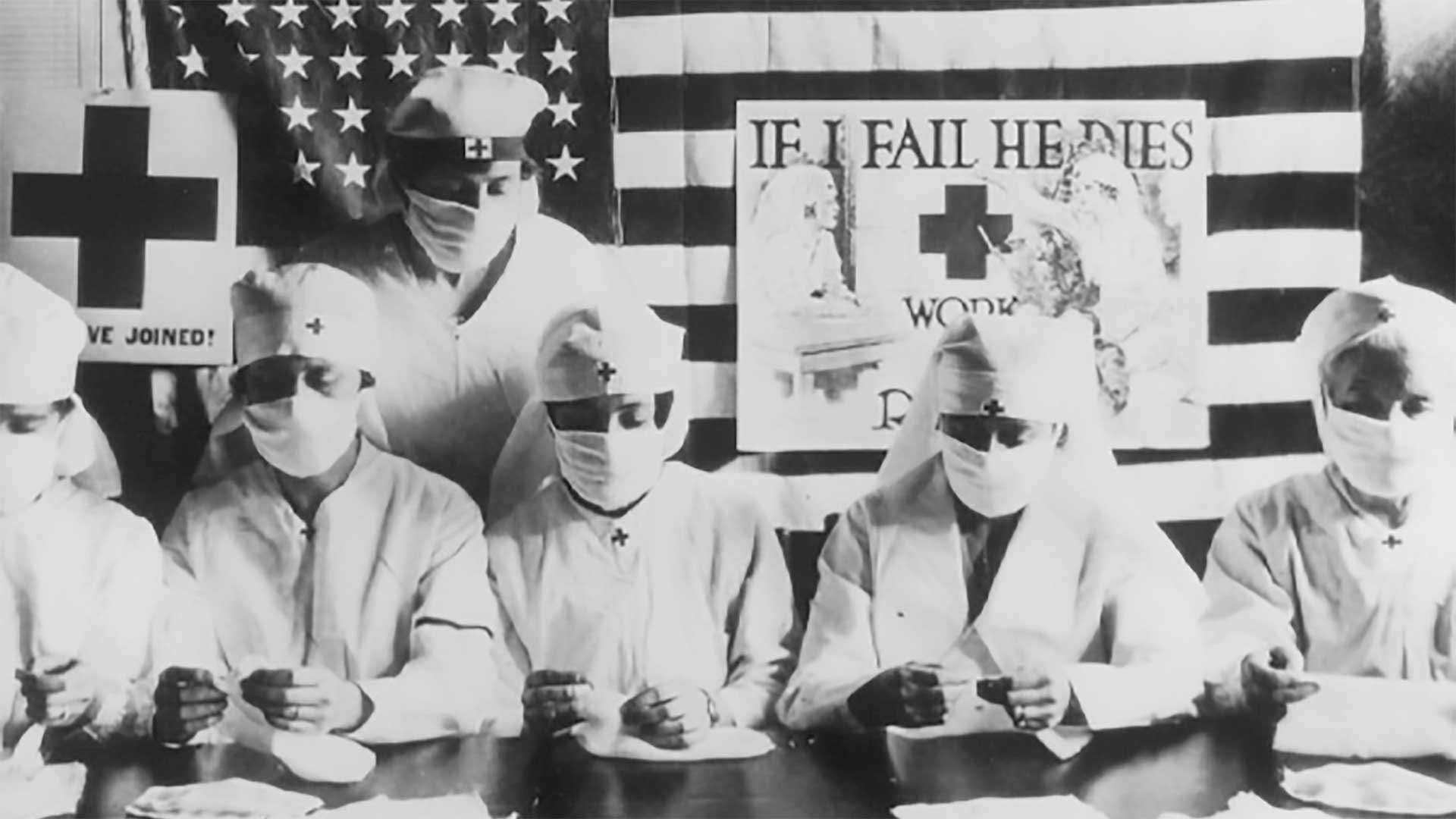
As the nation mobilized for war in the spring of 1918, ailing Private Albert Gitchell reported to an army hospital in Kansas complaining of fever, sore throat, and headache. He was diagnosed with influenza, a disease about which doctors knew little. Before the year was out, America would be ravaged by a flu epidemic that killed 600,000 people -- more than died in all the wars of this century combined -- before disappearing as mysteriously as it began.
America in 1918 was a nation at war. Draft call-ups, bond drives, troop shipments were all in high gear when the flu epidemic appeared. American soldiers from Fort Riley carried the disease to the trenches of Europe, where it mutated into a killer virus. Meanwhile, returning American troops were bringing the flu back home.
In September, the disease spread to the civilian population. It moved swiftly down the eastern seaboard to New York, Philadelphia, and beyond. It was a flu unlike any other. People could be healthy in the morning and dead by nightfall. Others died more slowly, suffocating from the buildup of liquid in their lungs.
Then, just as suddenly as it struck, the calamitous disease abruptly began to vanish.
American Experience: Influenza 1918, Tuesday at 9 p.m. on PBS 6.

By submitting your comments, you hereby give AZPM the right to post your comments and potentially use them in any other form of media operated by this institution.